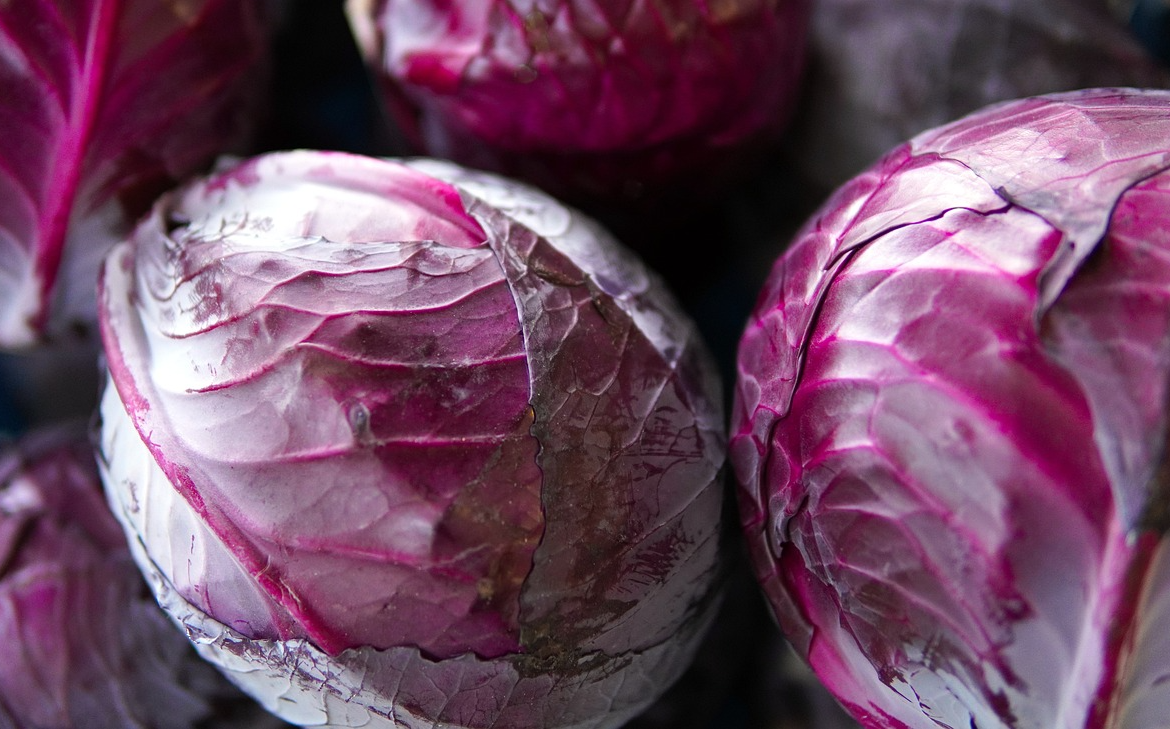
Red cabbage is a vibrant and nutritious vegetable that offers a variety of health benefits. Below is the nutritional content for one cup (89 grams) of raw, chopped red cabbage:
- Calories: 28
- Protein: 1.27 grams
- Fat: 0.1 gram
- Carbohydrates: 6.56 grams
- Fiber: 1.87 grams
- Sugar: 3.41 grams
- Vitamin K: 34 micrograms (28% of the daily value)
- Vitamin C: 50.7 milligrams (56% of the daily value)
- Folate: 16 micrograms (4% of the daily value)
In addition to these nutrients, red cabbage is rich in vitamin A, vitamin B6, calcium, manganese, magnesium, iron, potassium, and dietary fiber. It also contains significant amounts of antioxidants such as anthocyanins and flavonoids. These compounds contribute to red cabbage’s health benefits, including reducing inflammation, supporting heart health, fighting against cancer, promoting gut health, and boosting the immune system.
Red cabbage, a member of the Cruciferous family, is not just a variant of white cabbage but a nutritionally distinct vegetable. It is characterized by its red-purple leaves and a waxy coating, boasting a denser structure and better preservation qualities. Notably, red cabbage has a slightly spicy taste with a rich cabbage aroma, making it an ideal ingredient in fresh salads and coleslaw.
Nutritionally, red cabbage has a low-calorie content of 24 kcal per 100 grams and is rich in proteins, fiber, enzymes, phytoncides, and essential minerals like iron, potassium, and magnesium. It outshines white cabbage in vitamins, with significant B1, B2, B5, B6, B9, C, H, PP, A, and notably carotene, four times more abundant than its white counterpart.
Vitamin and Mineral-Rich: Red cabbage has many vital nutrients for health and well-being.
Dietary Fiber: Its high fiber content promotes digestive health and regularity.
Anthocyanins: These pigments give red cabbage its color and contribute to various health benefits, including improved capillary function and reduced radiation impact.
Cardiovascular Health: Studies, like those in the Journal of Nutrition, have shown that anthocyanins in red cabbage can reduce the risk of coronary artery disease.
Digestive Health: According to research in the American Journal of Clinical Nutrition, the fiber in red cabbage aids in digestion and prevents constipation.
Cancer Prevention: The National Cancer Institute recognizes the compounds in cruciferous vegetables like red cabbage as potential cancer risk reducers.
Though slightly drier than white cabbage, red cabbage stands out for its higher nutritional value. Its rich concentration of vitamins, minerals, and antioxidants makes it a formidable addition to any healthy diet.
-
USDA Food Data Central The USDA provides comprehensive data on the nutritional content of red cabbage, including its calorie, vitamin, and mineral levels. Source: USDA Food Data Central
-
National Institutes of Health (NIH) – Office of Dietary Supplements NIH offers in-depth information about the essential nutrients found in red cabbage, such as vitamin C, vitamin K, and iron, and their roles in human health. Source: NIH Office of Dietary Supplements
-
Journal of Agricultural and Food Chemistry Research published here discusses the antioxidant properties of anthocyanins, a type of pigment found in red cabbage, and their role in reducing inflammation and protecting against heart disease. Source: Journal of Agricultural and Food Chemistry
Note: This article is for informational purposes only and should not replace professional medical advise.
Red cabbage benefits are impressive. Discover the vibrant world of red cabbage, a nutrient-rich vegetable that not only adds a splash of color to your plate but also brings a host of health benefits. In this article, we delve into what sets red cabbage apart from its more common cousin, white cabbage and explore the myriad of ways it can enhance your health and diet.
